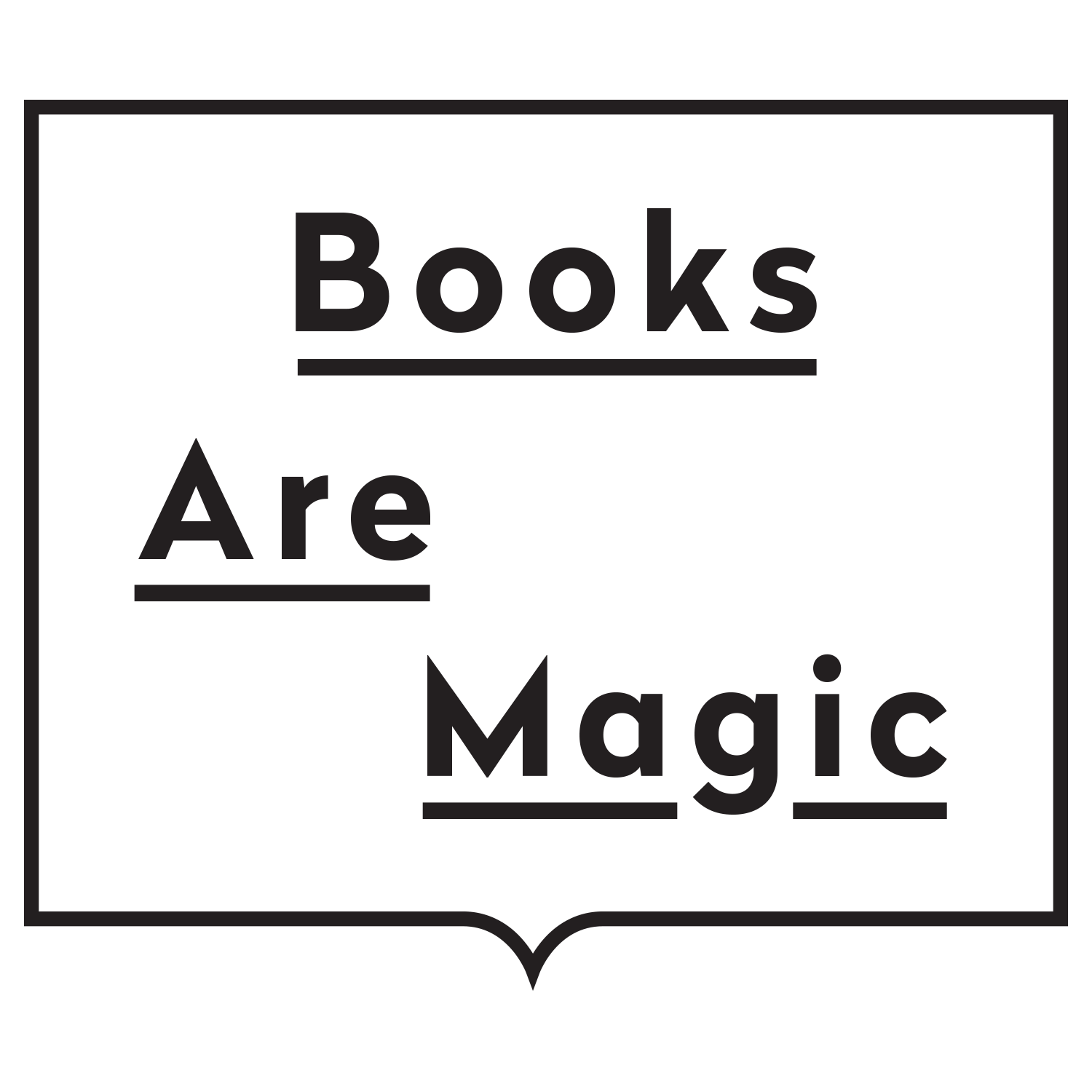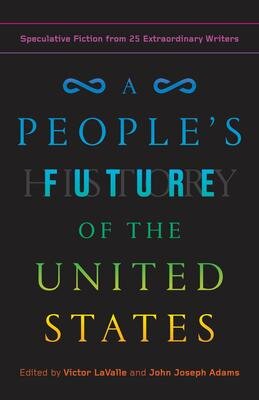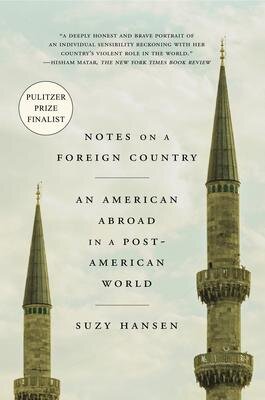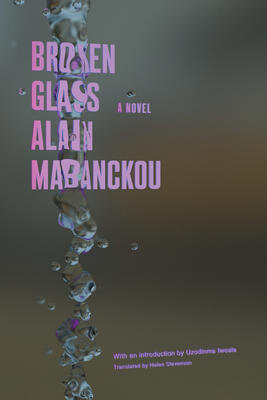Recommended Reading: Memorials & Monuments
With the elections approaching, civic engagement has been on our minds a lot lately. Especially with September holding 9/11 Remembrance Day, International Day of Democracy (9/15), Constitution Day (9/17), and National Voter Registration Day (9/22). We’ve also, of course, been thinking a lot about the role of civic disobedience, as protests continue across the nation (and globally), and as many monuments are taken down both with and without the approval of the state. In their absence, we’ve had the opportunity to collectively imagine what we wish to see in their place, and not just physically, but figuratively too.
This got me thinking about the symbolic roles of Memorials and Monuments in both our cultural consciousness and our civil discourse, which is why I asked my fellow booksellers about what books they deem monumental, for any reason. I asked them to consider what book(s) erect "new monuments," by imagining and/or illustrating alternative future(s)? What is a book that works to dismantle oppressive structures by naming them and their historical basis? A book that memorializes a figure, event, or series of events? This is what we came up with!
Intro by Serena Morales
Colleen
Braiding Sweetgrass by Robin Wall Kimmerer
When I think of memorials or monuments, I think of something long-standing, beautiful, strong, that represents a deeply important aspect of our society and culture. It is with this in mind that I highly recommend Robin Kimmerer’s Braiding Sweetgrass to be recognized as a monument to the environmental stewardship and collective care practices of Indigenous and Native peoples — both of which are things I think America and white, Western culture at large would do well to be reminded of and inhabit more of while we see the environmental crisis intensify every year. I love Braiding Sweetgrass for its joyful curiosity in and deep gratitude to the natural world, and for re-centering a relationship with our surroundings that our current model of existing has done just about everything to erase. This book is a wonderful meditation on the reciprocal nature of ecological systems and beings, and inspires a more generous and loving cohabitation in the world.
Serena M.
The Shadow King by Maaza Mengiste
I’ve been proselytizing about this book since before it came out in hardback, so everyone’s probably sick of me talking about it by now! But with it being recently shortlisted for 2020 Booker Prize, now’s as good a time as any to give my bid once more! This book was one of the first one’s that came to mind when selecting my picks for this theme, because it's a historical novel that foregrounds the—until now—untold and marginalized perspectives of WWII, centering the women soldiers at the heart of Ethiopia’s fight against Italian forces. In every way, this book is colossal, and yet so incredibly nuanced and intricate. I always tell folks not to fear it’s size because this is the type of book you simply inhale, thanks to Mengiste’s arresting, evocative prose. Like seriously, I will never cease to be impressed with how she managed the scope of this novel, while imbuing such poetry in sentence after sentence. War, and all it’s atrocities, are certainly not easy things to read (or write) about, and yet here we have it: spellbinding, complex, unforgettable. Definitely one for the books...and for the Booker! ;)
Arrow by Sumita Chakraborty
This collection is nothing short of monumental. Here, you have the product of a truly remarkable mind and the pristine, searching imagination contained therein. Chakraborty takes life’s (and death’s) great horrors, and with great alchemy, profound generosity, and unimaginable grace, distills them into something like love, like wonder, like beauty. A kaleidoscopic book of impossible somehows: somehow both parabolic and personal, both epic and infinitesimal, both historical and prophetic, both celestial and terrestrial. In other words, it does everything that poetry, at its very best, does and can do. I am better for having read this.
A People’s Future of the United States edited by Victor LaValle and John Joseph Adams
At once deeply troubling and deeply inspiring, this collection of 25 speculative fiction stories centers the voices of the nation’s most vulnerable, and most resilient. Inspired by Zinn’s A People’s History of the United States (another must read!), the collection imagines a vision for future-”America” that rejects the assumption (for some, the hope) that we, the people—the BIPOC, the queer, the poor, the migrant, the women and gender variant, etc—will be erased from it. Rather, we will have survived the present, despite ongoing threats to our rights, our livelihoods, and wellbeing, and we will continue to resist. A thought-provoking and unnerving book.
Memorial Drive by Natasha Trethewey
A harrowing, carefully crafted, and devastatingly beautiful memoir that will stay with you long after you leave it, as all good memorials do. A monument to a mother, like no other.
Danni G.
Notes on a Foreign Country: An American Abroad in a Post-America World by Suzy Hansen
I talk about this book quite often as it gave me language to articulate the amorphous feelings I was having while living in Germany. For context, I was in Germany during Trump's first year in office. It was my first time a road, and I kept encountering an assumption or mentality that pervaded all of my meaningful interactions with Germans and Europeans in general. Hansen uses James Baldwin's assertion that America lacks a sense of tragedy to create a framework of understanding how living in an empire colors your interactions with people who are from outside the empire. I am someone who, within an empire, has very little protection and value, and I had to confront that outside of the empire I have a currency that is at the expense of other nations. For me, this book gave a path toward pulling at the roots of American imperialist notions, which all are rooted in oppression.
The Frightened Ones by Dima Wannous, trans. Elisabeth Jaquette
This novel centers the emotional lived experience of being raised in Syria and seeing it plunged into chaos. Suleima's former lover escapes to Germany and sends her the manuscript of his latest novel. While reading the novel, she realizes that the narrator and her share a shocking number of similarities, The postmodern technique of a book within a book made me contemplate the tendrils of fear that stretch and grow a person's life. I admit that this novel required me to learn a fair bit about the war that tore some Syria cities and communities apart. I am thankful that this book focused on the impact of fear and its weaker iterations—anxiety, worry, paranoia—on the psyche and the body.
I came away from this novel thinking about the goal of terror in terrorism and its power to twist the lives of an entire generation of people. Wannous writes against the silence that terror seeks to impart and spread. This book is haunting, devastating, and utterly committed to the power of being able to name what frightens to give agency back to those who are frightened.
Lindsay H.
The Spirit Catches You and You Fall Down by Anne Fadiman
In the US we often regard American doctors as all-knowing beings--"the doctor knows best"--and while they are specialists in their field, and we should take their authority seriously, who is to say that they are more knowledgeable than the medical figures and practices from other cultures? In The Spirit Catches You and You Fall Down, Fadiman explores this through the story of one Hmong family's experience and difficulties with healthcare in the US. As readers, we are prompted to reimagine how our healthcare system works. Specifically in regards to immigrant families, is the way we provide them with care--care that is completely uncompromising in it's practice–helpful or actually more harmful?
Nika J.
Broken Glass by Alain Mabanckou
Broken Glass is perhaps a copyeditor’s worst nightmare, but I’m here for it and you should be, too. Forget paragraph breaks; there aren’t even sentence breaks between chapters. This novel is hilarious, tragic, obscene, and highly literary, but also incredibly subversive on a linguistic level. French will always be a colonial language, no matter who is using it, and Alain Mabanckou turns it–and English in translation–on its head. For me, the most important stories are the ones that disrupt and rupture accepted truths, and I love that this novel disrupts no matter the language it’s in. After all, all languages use sentences of some form. If challenging that isn’t monumental, I don’t know what is.
Abby R.
Are Prisons Obsolete? by Angela Y Davis
In this critical work, Davis examines the origins of our current penal system and its evolution into the keystone of the prison industrial complex that we are grappling with today. In 128 brief pages she effectively lays out why prison reform is simply not enough to combat the racism, classism, misogyny, and homophobia that holds up the prison system and why abolition needs to be our goal--that decarceration as a process inherently requires and would be the product of bolstering and demilitarizing our schools and providing adequate and free physical and mental health care, among other strategies. This book was deeply informative for me and forced me to question why I take for granted the supposed necessity of our current systems of law enforcement and incarceration, and I believe is necessary reading for anyone seeking to identify and name America's interlocking oppressive structures.
Nick B.
Begin Again by Eddie S. Glaude Jr.
A very touching book about race, identity, and James Baldwin. Leaving this country and looking back at race relations while being an outsider and looking at America from afar, Glaude Jr's writing is inspiring and remarkable. A must read for all.
Emma S.
Memorial by Bryan Washington
Okay, yes, this book is called Memorial, and so it feels almost like cheating to include it here, but here's why I'm doing it anyway--this incredible novel is about the memorials that we create for different parts of our lives, and our endings. We are accustomed to memorializing death, but what about dying? What about deaths and losses that are gradual and meandering, what monuments do we build to those messier moments? The book is about both romantic love and parental love, and both men in the romantic relationship that is the heart of the book are building their own memorials to their fathers, each ill in their own way. This is a beautiful book about the desire to repair wounds that are central to our senses of self, and what happens when those wounds shift, change, and even heal. It's a gorgeous debut novel, and you will love it, I feel quite sure.
Michael F-S
Arbitrary Stupid Goal by Tamara Shopsin
When I think about New York and the New York I always dreamed of inhabiting, I think about Arbitrary Stupid Goal. It’s a monument to a different time in the city. A wild, freewheeling time that supported the creativity I was always chasing while growing up in Florida. Of course, I got here right after 9/11 and that time was over. But, we have this book. This beautiful, funny book about a family who owned a general store in the village and all the wild things that happened there. Thank you Tamara.
Our Band Could Be Your Life by Michael Azerrad
This was the first book I thought of when our Internal Relations Manager Serena gave us this prompt. Not for the entire book, but for the specific chapter about the Minutemen. The Minutemen were a Southern California punk band in the 80’s led by Mike Watt and his best friend D. Boon. D. Boon was killed in a car crash while on tour and this chapter, chronicling the band’s brief rise and immortalization stuck with me. Here was a group of great friends who made art and defined a genre only to have it tragically end in death. Their music lives on and Mike Watt remains an extremely active and important part of the scene he built.
Anthony P.
Book Thieves by Anders Rydell
A book as an object is completely fascinating to me. A single book can have its own life and history that can surpass your own, and even generations after. While the Nazis were known for their book burnings and the plundering of famous artwork and treasures, it is relatively unknown that millions of books were also stolen from libraries and bookshops, to further their goal of controlling information and with that the rewriting of history. Many of these books found their way into the public library system, where librarians have taken on the monumental task of combing through their catalogues going by the faintest of clues—inscriptions, bookplates and letters in the effort of returning these books to the families of the rightful owners, Rydell is trusted with one of these books and sets out to return it to the family of the original owner. Books hold power, and the history of the efforts to protect this truth is absolutely captivating for any reader.
Daisy G.
A Song Below Water by Bethany Morrow
YA Literature has evolved into somewhat of a sociopolitical realm, especially for people of color. From The Hate U Give to Dear Martin, to Juliet Takes A Breath, teens are reading about the neverending injustices of the world, staying firm in what you believe in, and standing for justice. With all of the turmoil in the world, it's important to teach future generations what the world is really like and what it means to have courage. Bethany C. Morrow's A Song Below Water does just that. Veiled under an alternative world in which mythological creatures exist, Morrow uses a siren murder trial to illustrate the unjust murders of black men and women in the world today and the laughable "justice" that is served to the accused. Through the lens of two young magical black girls, we see the day to day fears of what it means to be different, different in a way that can get you killed. These themes are hard to swallow and challenging to read, but these stories are vital and deserve to be told.























